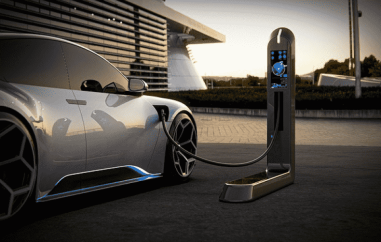MAN's CEO Critiques German Economic Policy - 'We Are the Nation's Cash Cow'
In an interview, the CEO of MAN, Alexander Vlaskamp, expressed concerns regarding the current state of the German automotive industry, particularly focusing on the challenges faced by manufacturers of commercial vehicles. The industry is grappling with numerous issues, including a sluggish transition to electric trucks, high-interest rates, and a lack of consumer confidence driven by ongoing political debates surrounding the future of combustion engines.
Vlaskamp emphasized that while significant investments are being made in the electrification of vehicles, including the establishment of battery production facilities and the deployment of electric city buses and trucks, the government has simultaneously cut funding for electric trucks and increased tolls on heavy vehicles. This combination of policies, he argues, is hindering the ability of transport companies to invest in new electric vehicles.
According to Vlaskamp, the current economic climate is exacerbating the challenges faced by the industry. He called for a reassessment of the toll system, suggesting that a portion of the revenue generated from truck tolls should be reinvested into the promotion of electric trucks and the expansion of charging infrastructure.
Many in the industry are looking for government support during these turbulent times. Vlaskamp identified three key areas where assistance is needed: enhancing support for electric vehicles, improving charging infrastructure, and reducing penalties for not meeting fleet emissions targets. He pointed out that the recent increase in tolls has placed additional financial strain on transport companies, making it difficult for them to invest in new vehicles.
Despite some discussions about reallocating toll revenues to support electric vehicle initiatives, Vlaskamp noted that substantive action has been lacking. The abrupt cessation of funding for electric trucks shortly after the toll increase went largely unnoticed, overshadowed by public outcry over cuts to electric car incentives.
Critics of the toll system argue that it disproportionately affects trucking companies, which are already struggling with rising operational costs. Vlaskamp highlighted the urgent need for a more favorable regulatory environment that would allow for sustainable growth in the sector.
He also pointed out the inadequacy of the current charging infrastructure for electric trucks, mentioning that there are only a limited number of dedicated charging stations in Germany. MAN is actively working to address this issue by investing in charging infrastructure alongside partners like Eon, but the pace of government action in this area remains a concern.
Looking ahead, Vlaskamp stressed the importance of long-term planning and stability for transport companies, particularly as they navigate the complexities of transitioning to electric vehicles. The looming penalties for failing to meet emissions targets present a significant challenge, especially in light of the ongoing economic downturn impacting the broader transport and logistics sectors.
While there is some interest from politicians in supporting the industry, Vlaskamp believes that more needs to be done to recognize the contributions of commercial vehicle manufacturers. He underscored that the industry has already made substantial investments in electric mobility and requires a supportive policy framework to continue this progress.
As MAN and other manufacturers strive to adapt to the evolving landscape of the automotive industry, the call for a more collaborative approach between the government and the commercial vehicle sector has never been more pressing. The need for a balanced strategy that fosters both environmental sustainability and economic viability is essential for the future of the industry.
















































